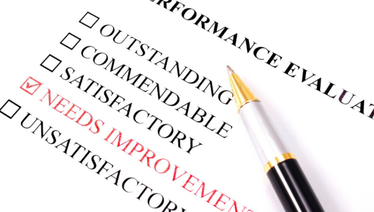However, careful analysis of the exact statements made in employee evaluation is necessary whether a statement is actionable in court as defamatory. For example, such statement as "difficult to work with" imply an assertion that can be objectively proved as false, especially if the employer claims to have received feedback from other employees supporting this, when they in fact never received such information. (See Mamou v. Trendwest Resorts, Inc. (2008) 165 Cal.App.4th 686, 728 (...although assertions employee was "not carrying his weight" and
"evidenced a lack of direction" were opinions, other assertion that third parties complained about
employee presented provably false assertion of fact). Certainly, when the employer is caught fabricating evidence, this makes any case, including defamation case, much stronger. Both employees and employers should know that even one provably false statement can form a basis for a defamation case against the employer. This type of claim might or might not be worth pursuing, depending on other circumstances and other claims that can be made against the employer.


 RSS Feed
RSS Feed

